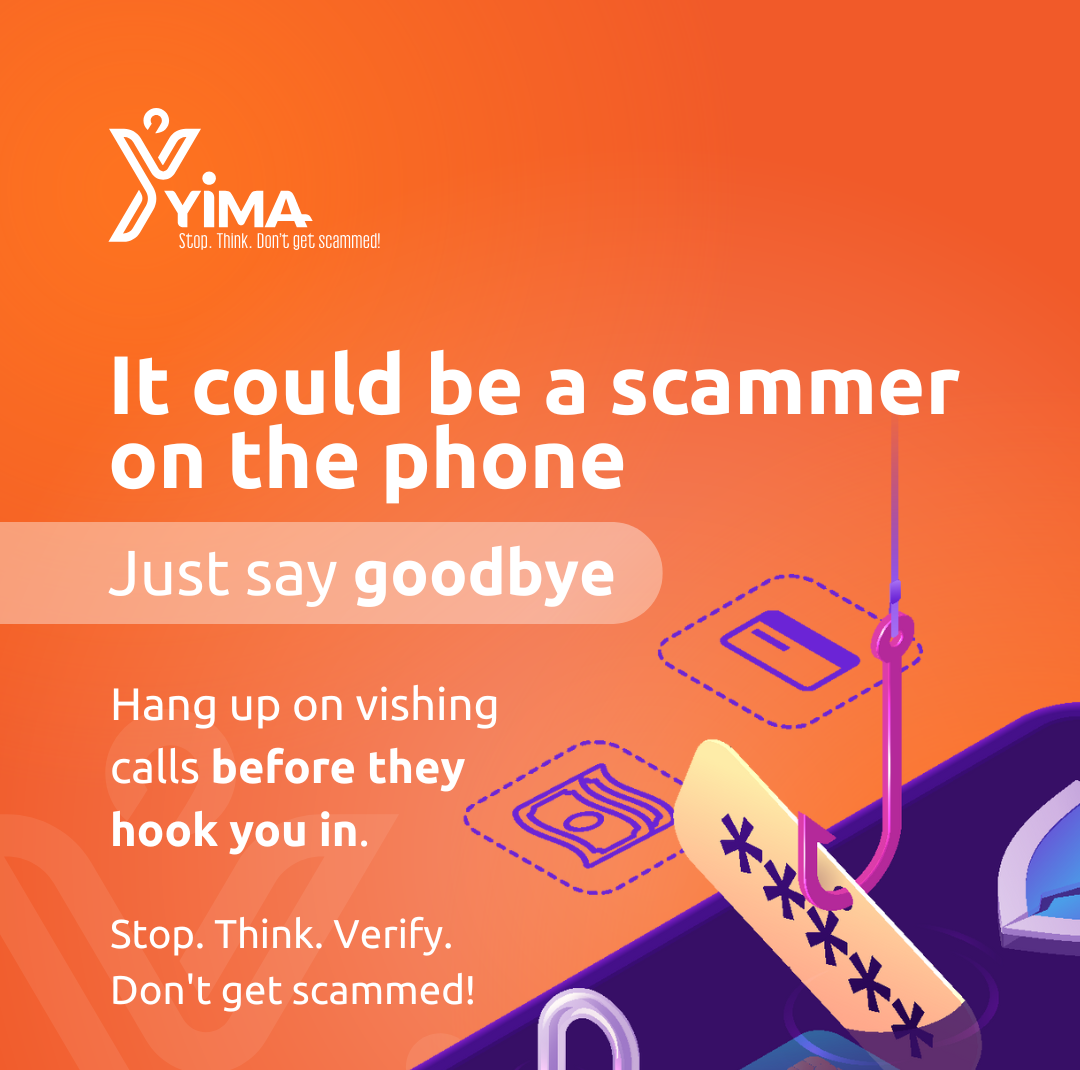The Southern African Fraud Prevention Service (SAFPS) has launched an awareness campaign to help consumers recognise these scams and take appropriate action to protect themselves.
Modus operandi
The scam involves phone calls from fraudsters (vishing), who cleverly manipulate the public into revealing sensitive banking information or to convince consumers to use a link that will ultimately transfer their hard-earned money into a fraudster's bank account. It relies on psychological strategies and impersonation, with them often posing as representatives from legitimate organisations like banks, mobile service providers, insurers or retailers, government agents, or IT support companies.
"In South Africa, this scam tactic has become a preferred method for syndicates targeting both individuals and corporate employees, especially those with access to financial systems or customer data," says Manie van Schalkwyk, CEO of the Southern African Fraud Prevention Service (SAFPS). He adds that the consequences range from drained bank accounts to compromised internal networks. Understanding how this scam works is the first step in building resilience, as awareness is the frontline defence in fraud prevention.
Popular scenarios
While one may think, 'This will never happen to me; I won' t fall for these scams,' Van Schalkwyk warns against complacency. "The method of deception used to scam targets involves a sophisticated blend of impersonation, social engineering and technology."
These are some of the tactics used by scammers when phoning potential victims:
- Claiming they are from the fraud department at your bank and that they have detected fraud on your account or that they are following up on a fraud incident, and they need you to verify details.
- They claim that someone has requested a SIM swop on your number and to stop this, you need to provide a one-time pin.
- That there is a problem with your account and your money needs to be moved to another account for safe keeping.
- Some scammers even target people's life savings by using information they have on you to convince you to invest in something that promises wonderful returns.
- Claiming that they are hosting an online event/ meeting (which supports their scam objective – like an investment opportunity for example) on popular messaging or social media platforms like WhatsApp, Telegram or Facebook. They send an invite while on the phone with a one-time pin, which they ask you to read back to them to confirm your participation/ access to the event.
"These scammers often have some personal information already, which they use to legitimise their scam and gain your trust," warns Van Schalkwyk. "Scammers are using manipulation and intimidatory tactics to try and coerce people into taking action and anybody can become a victim."
Red flags
The SAFPS urges the public to be aware of the following red flags:
- The call is unsolicited. You receive an unexpected call claiming there's fraud, unusual activity, or a problem with your account, intended to manipulate you into acting quickly.
- They pressure you to act quickly. Be wary of a sense of urgency or pressure. Scammers try to rush you into making a decision or acting quickly, often threatening negative consequences if you do not follow their instructions. Like requesting you to click on a link that they send to you while you are on the call with them.
- They ask for confidential information. The person on the call may ask you for personal or confidential information, like your ID number, login credentials, banking details, account information, and PIN. Legitimate organisations will never ask for confidential information like your banking PIN or login.
- They are vague. Scammers will often avoid providing further details or formal contact information or transferring the call to a manager and may become agitated when they are asked for more information.
- Unusual payment methods. They may ask you to make payment via vouchers, cryptocurrency or a link that they will send to you.
- Poor call quality. There may be suspicious background noise, static, or it sounds like an unnatural (robotic) voice, which can indicate a fraudulent call.
Steps to take
How do you handle a situation where you are faced with one of these calls?
- Just say goodbye. If you did not expect this call and the caller offers help with an issue on your bank account, do not press any buttons, share one-time-pins, or respond to pop-ups. Just say goodbye and end the call.
- Do not share information. Never give them any personal or financial details over the phone.
- Verify the call. Contact your bank using the official phone number listed on their website, in your account statement, or through their official channels. Contact the relevant department and confirm that the call request was legitimate.
- Report it. Report the suspicious call to the relevant organisation and/ or authorities. Consumers can report these cases to Yima (a product of the SAFPS) on www.yima.org.za or via the hotline on 083 123 7226.
Protection is your best defence. "To ensure your money stays in your bank account, just say goodbye," says Van Schalkwyk.




